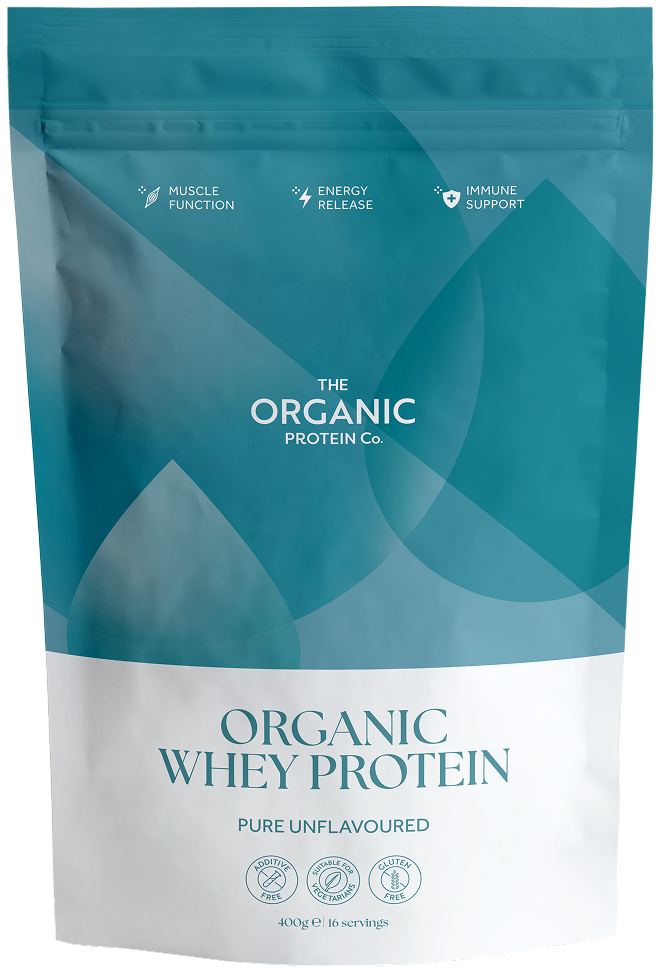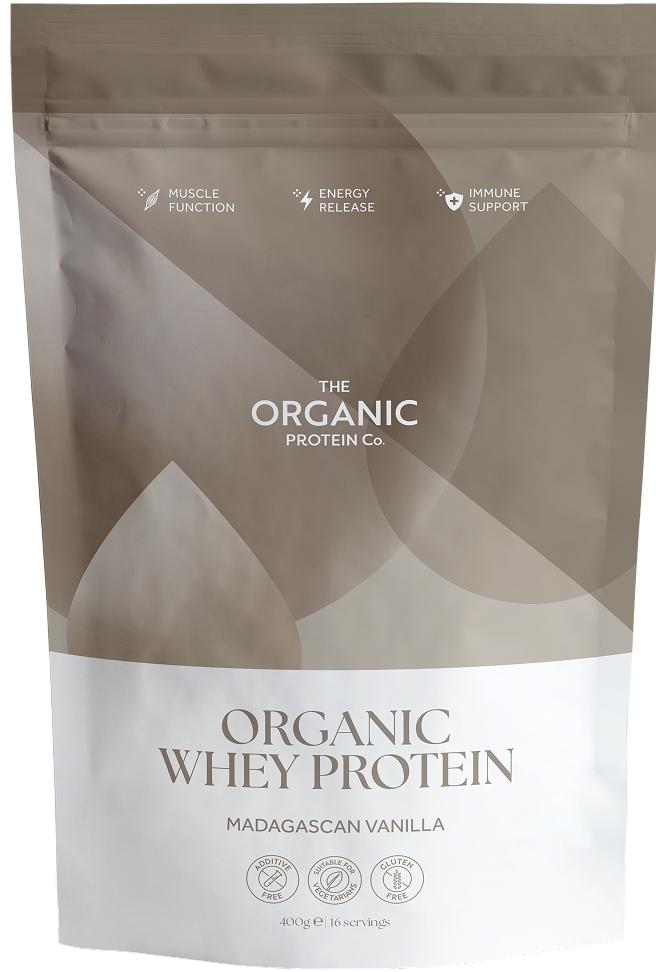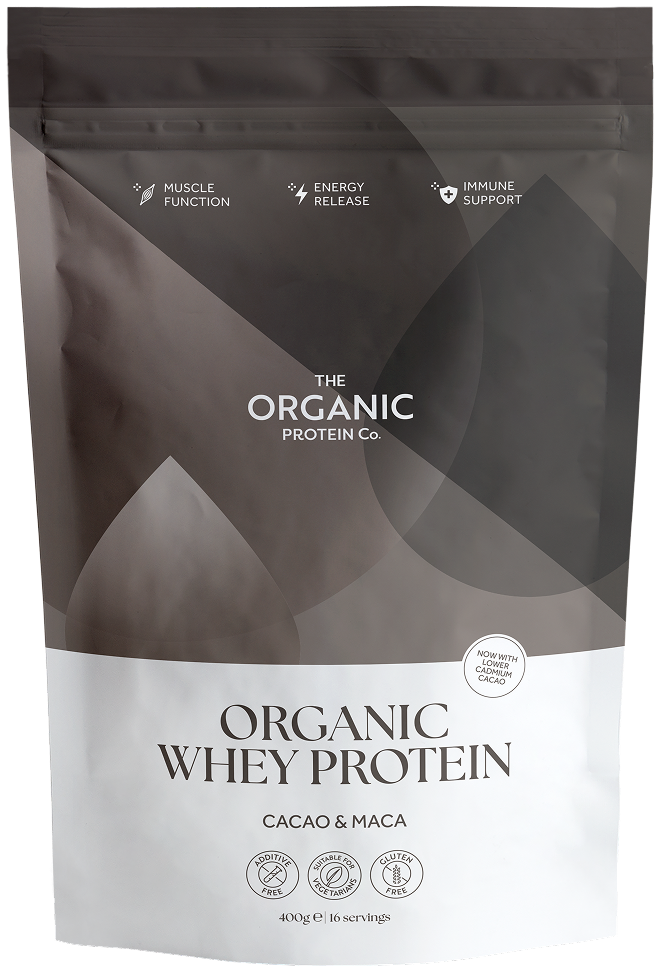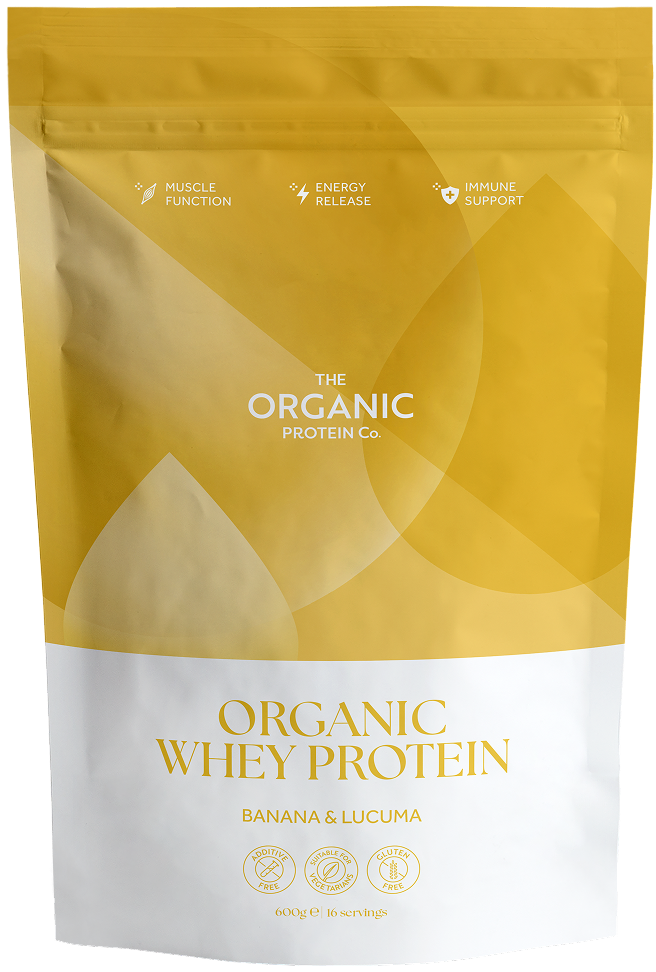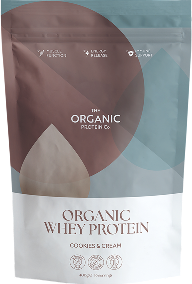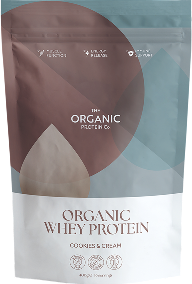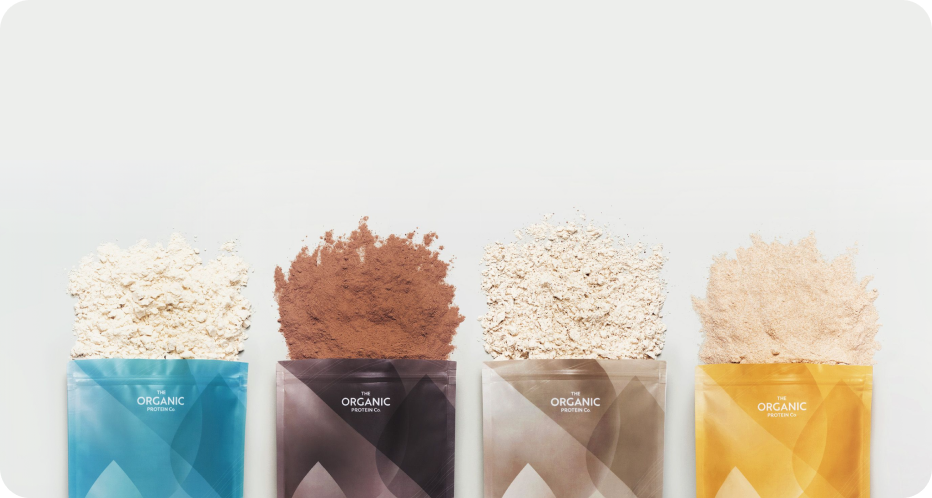Have you ever checked out the back of a protein powder and spotted ingredients like soy lecithin, sunflower lecithin, or carrageenan? These are emulsifiers – food additives frequently used to improve mixability, texture, and shelf life.
Although emulsifiers have become common ingredients in our food, you might stop to wonder if they’re necessary – or even beneficial for us. So, what exactly are emulsifiers, why are they so widely used in protein powders, and do they have any downsides according to the latest research?
What are emulsifiers?
It really comes down to chemistry. In short, food emulsifiers help two substances which wouldn’t normally mix together, such as oil and water, to combine more easily. The resulting solution is what’s known as an emulsion.
Emulsifiers have been used for many years in the food industry to manufacture commonly purchased products such as mayonnaise, chocolate bars, and sliced bread. They’re relied upon to prevent the separation of ingredients and also enhance the taste, texture, appearance, and shelf life of what you’re eating.
Why are emulsifiers used in protein powders?
Like much of the food we can get in the supermarket today, protein powders often contain emulsifiers. They’re deemed necessary by some brands for a few reasons:
- Aiding mixability: Emulsifiers can help powders dissolve more easily, even in cold liquids.
- Smoother texture: As well as mixing more easily, emulsifiers can help prevent clumps, creating a more creamy, uniform consistency.
- Extended shelf life: Some emulsifiers act as stabilisers, keeping powdered ingredients from separating over time.

Different types of emulsifiers
There are many different types of emulsifiers, some natural and some synthetic. In the EU, the Food Standards Agency (FSA) has approved 63 different types including stabilisers, gelling agents, and thickeners.
Some of the most common types are below, and you can see a full list of approved emulsifiers in the UK here .
| Emulsifier | Common uses |
|---|---|
| Lecithin (such as soy or sunflower) | Chocolate, protein powders |
| Carrageenan | Ice cream, yoghurt, dairy-free milks |
| Guar gum | A thickener for soups, sauces, and gravies |
| Xanthan gum | Mayonnaise and salad dressings, ice cream, gluten-free products |
| Mono- and diglycerides of fatty acids | Peanut butter, margarine, baked goods, processed meats |
Are emulsifiers bad for you? What the research says
Emulsifiers are widely used in the food industry and are approved for consumption by the FSA . But emerging research suggests some may not be as harmless as once thought – particularly when it comes to gut health and inflammation.
In 2017, the European Food Safety Authority identified food emulsifiers as an emerging risk in light of the research which was beginning to surface.
1. Potential gut health impact
Some studies are starting to link emulsifiers in food to the alteration of gut microbiota. This is the balance of beneficial bacteria in the digestive system, which has been found to govern many bodily functions from your metabolism to your mood .
One study in mice found that certain emulsifiers – specifically carboxymethylcellulose and polysorbate-80 – decreased the diversity of their gut bacteria and disrupted the mucus gut barrier. This increased gut permeability (often referred to as "leaky gut”). ( 1 ) It meant that bacteria and other molecules were more likely to leak through the gut lining, causing inflammation.
This study was conducted in mice, not humans, so it doesn’t confirm that the same process occurs when we consume emulsifiers. Nevertheless, further studies have begun to show similarly negative effects in humans, as we’ll find out.
2. Inflammation concerns
A study of the same two emulsifiers on human gut microbiota found that “commonly used emulsifiers can directly alter gut microbiota in a manner expected to promote intestinal inflammation.” ( 2 )
Chronic inflammation is associated with various inflammatory bowel diseases, such as Crohn’s disease, ulcerative colitis, and other metabolic disorders. ( 3 , 4 )
One small human study asked patients in remission with ulcerative colitis to test the removal of carrageenan from their diet for up to 12 months. Some patients were given a carrageenan capsule daily, while others were given a placebo. Three of the five patients taking the carrageenan capsule relapsed, while none of those taking a placebo capsule did. ( 5 )

Why do we avoid emulsifiers in our organic whey protein powders?
Here at The Organic Protein Co., we wanted to make a whey protein powder that was as natural as possible. This is why we choose to never use emulsifiers in our products, giving our customers a genuine alternative to ultra-processed protein powders .
While many brands add emulsifiers to improve mixability and texture, we take a different approach: using high-quality, organic, gently cold-filtered whey protein that doesn’t need artificial additives to deliver a smooth and enjoyable shake.
Pure, minimally processed ingredients
Emulsifiers are often used in ultra-processed protein powders, but we prioritise simplicity and purity. Our protein powders are made with just fresh whey protein from organic milk and a handful of wholefood ingredients, ensuring they remain minimally processed and free from unnecessary chemicals.
No need for emulsifiers
Some brands rely on emulsifiers to improve mixability or to create a "premium" texture, but a high-quality protein powder shouldn’t need them. Our organic whey protein is cold-filtered; by using low temperatures, we avoid the chalky texture and off-flavours of other protein powders which require masking with artificial additives.
While it might take a little more shaking to fully blend your protein shake, we think it’s a small trade-off when you avoid artificial additives that could be having a negative effect on your gut health.

How to choose an emulsifier-free protein powder
Nowadays, it can be difficult to avoid artificial ingredients, like emulsifiers, completely. In fact, most guidance recommends aiming to reduce rather than completely stop consumption of ultra-processed foods with artificial ingredients such as xanthan gum.
Nevertheless, opting for a naturally, minimally processed protein powder is a simple way to lower your daily intake of artificial ingredients, aligning with a more natural approach to nutrition. Look out for:
- An ingredients list that’s free from artificial emulsifiers, flavourings, sweeteners, stabilisers, and thickeners.
- Brands that prioritise transparency in their ingredients, sourcing, and production methods.
- Organic certification, which bans the use of artificial ingredients and additives.
The bottom line on emulsifiers in protein powder
While emulsifiers may improve mixability and shelf life, growing research suggests they could impact gut health and inflammation. Although protein powder is just one part of the puzzle, choosing options that avoid excessive – or any – artificial additives is a priority for some. It’s one way to limit ultra-processed foods in your diet and opt for something more natural.

